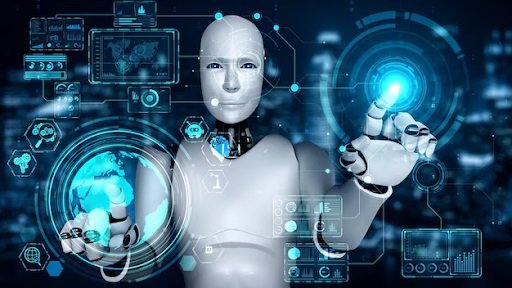Software testing is not an exception among the several sectors artificial intelligence (AI) is transforming. The need for efficient and effective testing techniques rises along with the demand for premium software. AI presents a good answer and brings several developments as well as changes to established testing methods. This article investigates how ai in software testing is expected to change the sector by means of present trends and future forecasts.
Current Trends in AI-Powered Software Testing:
1. Test Automation and Artificial Intelligence
Ever since software testing has devoted a great deal of focus to test automation. AI is part of the growing intelligence and flexibility of test automation. AI-powered tools can offer the creation of test scripts or the identification of test cases and can even execute tests on their own. This integration helps reduce the amount of time and effort required for hand testing so that testers can focus on more challenging situations.
2. Predictive Analytics
Currently, artificial intelligence is capable of identifying patterns and analyzing massive amounts of data, which is transforming testing strategies. Predictive analytics is achieved through artificial intelligence, which predicts potential issues and areas that are likely to have issues with the software. By using statistics artificial intelligence can predict which part of the program is likely to falter, thus helping the testers to concentrate on those areas and consequently increase the overall quality of the software.
3. Continuous Testing and DevOps
Artificial intelligence is closely involved in continuous testing, and the DevOps terrain is being formed to a significant extent. Continuous testing is about identifying issues early and running these automated tests all through the development process. Artificial intelligence aids in this process by learning from test data and optimizing the testing processes from time to time. Better feedback loops, more frequent deliveries, and reliable software are therefore offered as outcomes.
4. AI-Driven Test Maintenance
One of the challenges in test automation is the ability to maintain the most updated test scripts as an application grows. AI addresses this by re-writing test scripts as the application evolves. Through AI-assisted test maintenance, the incidence of manual modifications is reduced, which means that the usability of test cases is constantly retained over time.
5. Intelligent Data Management Test
AI testing generates and controls test data more effectively, hence improving test data management. It guarantees thorough test coverage by generating reasonable test data depending on several circumstances. AI can also find and hide private data, therefore guaranteeing adherence to data privacy laws.
Future Predictions for AI in Software Testing
1. Autonomous Testing
The future of autonomous testing will shape artificial intelligence in software testing in the future. Self-governed testing will be capable for AI-driven systems without any human interference in the design, execution as well as assessment of the tests. Such systems will always be learning from past test data in a bid to improve on accuracy and efficiency of future tests. If testing is done autonomously, faster development cycles will be experienced since there will be reduced time and resources required for testing.
2. AI-Enhanced Test Optimization
AI will enhance the test optimization by identifying the duplicate and the most important test cases. The real-time analysis of test results, changes in the code, and users’ activity will serve as the basis of this process. AI will ensure that covering attempts focus on areas with maximum effect and increase the overall test effectiveness and software quality.
3. Left Shifting Testing
The left-shift testing is applied from the early development cycle, and testing should not be left out. This means that artificial intelligence will become relevant for shift-left testing as it provides developers with instant code quality and probable defects feedback. The use of AI tools will enable a check on the code as it is being written in order to eliminate bugs before they become a serious issue. These ultimate benefits produce faster and more dependable software development as a result of the proactive strategy.
4. Improved AI Test Coverage
In general, using artificial intelligence to supplement the current testing workforce, the edge cases and situations that may be unseen by human testers will be identified to allow coverage of ample test conditions. Automated testing secures entire coverage since the AI algorithms mimic the users’ actions and generate a huge range of test cases. Better and more reliable soft is what one will get from this.
5. AI-Powered Visual Inspection
Visual testing includes checking an application’s visual features like responsiveness, design, and layout. Visual testing technologies driven by artificial intelligence will automatically spot visual differences by matching screenshots of the application with expected outcomes. This guarantees a consistent and aesthetically pleasing user experience over several devices and platforms.
6. Natural Language Processing (NLP) in Testing
Another area where artificial intelligence will be quite influential is natural language processing (NLP). NLP will help AI-powered systems comprehend and process natural language commands, hence facilitating testers’ creation and execution of test cases. This will reduce the obstacle to test automation’s entrance, thereby enabling more team members to participate in the testing process.
Conclusion
With many developments poised to change the sector, artificial intelligence in software testing looks to be bright. AI is transforming how software is tested and delivered, from intelligent test automation and predictive analytics to autonomous testing and improved test coverage. This will free up the process of testing, which as the application of artificial intelligence for development grows, will achieve unknown levels of precision, effectiveness, and reliability so that companies are able to deliver high-quality software.
Read More: MyLittleLilly com: The place to be for everything Technology

















